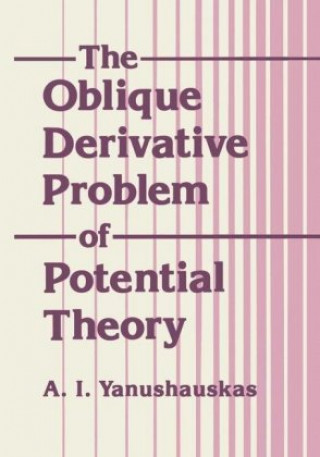
Code: 02181070
Oblique Derivative Problem of Potential Theory
by A.T. Yanushauakas
An important part of the theory of partial differential equations is the theory of boundary problems for elliptic equations and systems of equations. Among such problems those of greatest interest are the so-called non-Fredholm bo ... more
- Language:
 English
English - Binding: Paperback
- Number of pages: 260
Publisher: Springer-Verlag New York Inc., 2012
- More about this

61.35 €

Low in stock at our supplier
Shipping in 13 - 16 days
Potřebujete více kusů?Máte-li zájem o více kusů, prověřte, prosím, nejprve dostupnost titulu na naši zákaznické podpoře.
Add to wishlist
You might also like
-

One False Move
11.68 € -18 % -

Discourse of Enlightenment in Eighteenth-Century France
46.94 € -

Klosterleben im deutschen Mittelalter
49.16 € -2 % -

Bibliographie zur Geschichte des bairischen Baierns, Band 11
47.55 € -10 % -

Outpatients
11.78 € -17 % -

Der einfache Weg zum begeisternden Vortrag
16.51 € -14 % -

Wettbewerb Der Vertriebssysteme
66.69 €
Give this book as a present today
- Order book and choose Gift Order.
- We will send you book gift voucher at once. You can give it out to anyone.
- Book will be send to donee, nothing more to care about.
More about Oblique Derivative Problem of Potential Theory
You get 154 loyalty points
 Book synopsis
Book synopsis
An important part of the theory of partial differential equations is the theory of boundary problems for elliptic equations and systems of equations. Among such problems those of greatest interest are the so-called non-Fredholm boundary prob lems, whose investigation reduces, as a rule, to the study of singular integral equa tions, where the Fredholm alternative is violated for these problems. Thanks to de velopments in the theory of one-dimensional singular integral equations [28, 29], boundary problems for elliptic equations with two independent variables have been completely studied at the present time [13, 29], which cannot be said about bound ary problems for elliptic equations with many independent variables. A number of important questions in this area have not yet been solved, since one does not have sufficiently general methods for investigating them. Among the boundary problems of great interest is the oblique derivative problem for harmonic functions, which can be formulated as follows: In a domain D with sufficiently smooth boundary r find a harmonic function u(X) which, on r, satisfies the condition n n ~ au ~ . . . :;. . ai (X) ax. = f (X), . . . :;. . [ai (X)]2 = 1, i=l t i=l where aI, . . . , an,fare sufficiently smooth functions defined on r. Obviously the left side of the boundary condition is the derivative of the function u(X) in the direction of the vector P(X) with components al (X), . . . , an(X).
 Book details
Book details
Book category Books in English Mathematics & science Mathematics
61.35 €
- Full title: Oblique Derivative Problem of Potential Theory
- Author: A.T. Yanushauakas
- Language:
 English
English - Binding: Paperback
- Number of pages: 260
- EAN: 9781468416763
- ISBN: 1468416766
- ID: 02181070
- Publisher: Springer-Verlag New York Inc.
- Weight: 507 g
- Dimensions: 254 × 178 × 15 mm
- Date of publishing: 06. April 2012
Trending among others
-

Cambridge International AS & A Level Mathematics Pure Mathematics 1 Student's Book
29.21 € -5 % -

Mathematics Applications and Interpretation for the IB Diploma Standard Level
96.92 € -

Mathematics Analysis and Approaches for the IB Diploma Higher Level
106.19 € -

Fashion, Faith, and Fantasy in the New Physics of the Universe
18.23 € -8 % -

Love and Math
15.61 € -25 % -

Mathematics Applications and Interpretation for the IB Diploma Higher Level
106.69 € -

Mathematics Analysis and Approaches for the IB Diploma Standard Level
96.92 € -

Beyond Infinity
11.58 € -21 % -
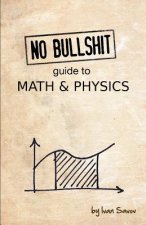
No Bullshit Guide to Math and Physics
28.20 € -16 % -
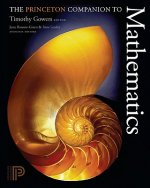
Princeton Companion to Mathematics
98.43 € -9 % -

ISE Discrete Mathematics and Its Applications
76.57 € -

Math Art
22.26 € -20 % -

Basic Mathematics
51.88 € -17 % -
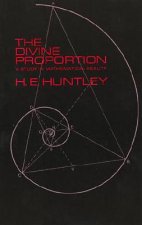
Divine Proportion
8.76 € -28 % -

Basic Set Theory
20.85 € -19 % -

Mathematics for the IB Diploma: Higher Level with CD-ROM
84.22 € -

Mathematics for the Non-mathematician
28.10 € -20 % -

Stanford Mathematics Problem Book
8.65 € -20 % -

Simply Maths
12.08 € -29 % -
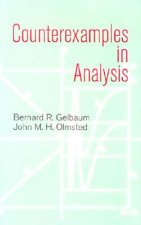
Counterexamples in Analysis
17.22 € -28 % -

Calculus For The Practical Man
52.79 € -

Thinking Mathematically
56.41 € -

Mathematics in Life, Society, and the World
61.65 € -

Cambridge International AS & A Level Mathematics Pure Mathematics 2 and 3 second edition
40.80 € -4 % -

A-Level Maths Edexcel Practice Papers
10.37 € -15 % -

Microsoft Power BI For Dummies
26.09 € -30 % -

Colossal Book of Mathematics
33.64 € -17 % -
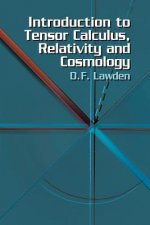
Introduction to Tensor Calculus, Relativity and Cosmology
14.10 € -21 % -

Effective Data Storytelling - How to Drive Change with Data, Narrative and Visuals
34.35 € -19 % -
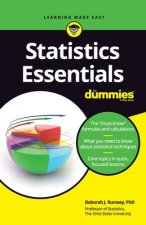
Statistics Essentials For Dummies
11.17 € -21 % -

Data Science Programming All-in-One For Dummies
29.61 € -34 % -

Pearson Edexcel International A Level Mathematics Pure 2 Mathematics Student Book
36.46 € -

Trachtenberg Speed System of Basic Mathematics
11.27 € -28 % -
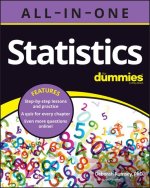
Statistics All-in-One For Dummies (+ Chapter Quizzes Online)
25.48 € -35 % -

Pearson Edexcel AS and A level Mathematics Pure Mathematics Year 1/AS Textbook + e-book
36.67 € -

Principia
18.43 € -12 % -
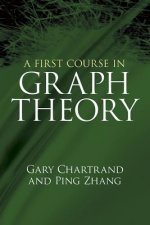
First Course in Graph Theory
29.11 € -5 % -

Pearson Edexcel A level Mathematics Pure Mathematics Year 2 Textbook + e-book
35.86 € -

Topology (Classic Version)
132.99 € -

Physics for Medical Students
25.68 € -18 % -

Useful Math & Physical Formulae
7.04 € -19 % -

Tiger That Isn't
10.27 € -28 % -

Schaum's Outline of Mathematical Handbook of Formulas and Tables, Fifth Edition
15.20 € -28 % -

Pearson Edexcel GCSE (9-1) Mathematics Foundation Student Book 1
21.55 € -

Vedic Mathematics
19.34 € -

Pearson Edexcel A level Mathematics Statistics & Mechanics Year 2 Textbook + e-book
18.53 € -

Pearson Edexcel GCSE (9-1) Mathematics Foundation Student Book 2
21.55 € -

Singapore Math 70 Must-Know Word Problems Level 4, Grade 5
10.97 € -22 % -

Schaum's Outline of Geometry, Sixth Edition
16.21 € -28 %
Collection points Bratislava a 2642 dalších
Copyright ©2008-24 najlacnejsie-knihy.sk All rights reservedPrivacyCookies


 15549 collection points
15549 collection points Delivery 2.99 €
Delivery 2.99 € 02/210 210 99 (8-15.30h)
02/210 210 99 (8-15.30h)